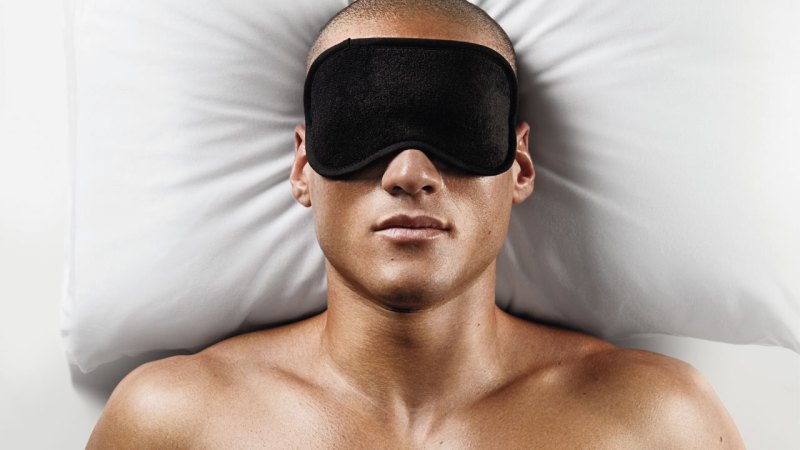Sleep Cycle, Athlete Performance & Recovery

Many of the world’s greatest athletes eat, sleep, breathe, and live for their sport. But did you know that in addition to physical conditioning and conscious eating, sleep plays a major role in athletic performance and competitive results? The quality and amount of sleep athletes get is often the key to winning. REM sleep in particular provides energy to both the brain and body. If sleep is cut short, the body doesn’t have time to repair memory, consolidate memory, and release hormones.
Tennis great, Serena Williams, told a UK publication that she usually sleeps well and enjoys going to bed early around 7 p.m. On the website of cyclist Lance Armstrong is a LiveStrong dare to get six to eight hours of sleep to improve mood, performance, and concentration.
A study in the journal SLEEP confirms the role of sleep in performance with results that show declines in split-second decision making following poor sleep. Results also showed increased accuracy in well-rested subjects.
Exercise depletes energy, fluids, and breaks down muscle. Hydration and the right fuel are only part of training and recovery. What athletes do in the moments during and immediately after competition also determines how quickly their bodies rebuild muscle and replenish nutrients. This helps maintain endurance, speed, and accuracy.
Some research suggests that sleep deprivation increases levels of stress hormone, cortisol. Sleep deprivation has also been seen to decrease production of glycogen and carbohydrates that are stored for energy use during physical activity. In short, less sleep increases the possibility of fatigue, low energy, and poor focus at game time. It may also slow recovery post-game.
Whether you’re at the top of your game or in the game for the fun of it, getting the proper amount of sleep is necessary to face the word with your best food forward. Sleep will help you on the road to good fitness, good eating, and good health.
How Much Sleep Do We Really Need?
Sleep is a vital indicator of overall health and well-being. We spend up to one-third of our lives asleep, and the overall state of our “sleep health” remains an essential question throughout our lifespan.
Most of us know that getting a good night’s sleep is important, but too few of us actually make those eight or so hours between the sheets a priority. For many of us with sleep debt, we’ve forgotten what “being really, truly rested” feels like.
To further complicate matters, stimulants like coffee and energy drinks, alarm clocks, and external lights—including those from electronic devices—interferes with our “circadian rhythm” or natural sleep/wake cycle.
Sleep needs vary across ages and are especially impacted by lifestyle and health. To determine how much sleep you need, it’s important to assess not only where you fall on the “sleep needs spectrum,” but also to examine what lifestyle factors are affecting the quality and quantity of your sleep such as work schedules and stress.To get the sleep you need, you must look at the big picture.
How Excessive Sleep Can Affect Your Metabolism
Few people worry about spending too much time in bed. An extra hour or two of stolen sleep on Sunday can feel like heaven after a long week of work and family activities. But did you know that clocking more than the recommended amount can negatively impact your health?
For most adults, getting between seven and nine hours of sleep a night is ideal. Although a small percentage of people actually need 10 hours, for most adults sleeping more hours than the recommended amount may indicate an underlying health concern. In addition, regularly sleeping more than the suggested amount may increase the risk of obesity, headache, back pain, and heart disease. And a recent study discovered that oversleeping can put the body at risk for metabolic issues. Learn more about how excessive sleep can impact your metabolism.
What the Science Says About Sleep
In a recent study, researchers analyzed the health, medical histories, and sleep totals of a group of more than 130,000 men and women ages 40 to 69. With this data, researchers were able to link sleeping less than six hours, as well as sleeping more than 10 hours, to cases of metabolic syndrome and related symptoms.
Understanding Metabolic Syndrome
People diagnosed with metabolic syndrome have at least three of the following symptoms: Excess fat around the middle, hypertension, low levels of HDL or “good” cholesterol, high fasting blood glucose and high triglyceride levels. In the study, 29 percent of men were deemed to have metabolic syndrome, while a quarter of women showed signs of it.
There are some notable differences between genders when it comes to sleep and metabolism. In particular, women who sleep less than six hours a night may have more belly fat than those who sleep longer, while men are likely to have both bigger waists and metabolic syndrome if they sleep less than six hours. On the other hand, women who sleep 10 or more hours have a much higher risk for metabolic syndrome, while in men it correlates to higher triglyceride levels as well.
Red Flags for Metabolism Issues
Few people worry about spending too much time in bed. An extra hour or two of stolen sleep on Sunday can feel like heaven after a long week of work and family activities. But did you know that clocking more than the recommended amount can negatively impact your health?
For most adults, getting between seven and nine hours of sleep a night is ideal. Although a small percentage of people actually need 10 hours, for most adults sleeping more hours than the recommended amount may indicate an underlying health concern. In addition, regularly sleeping more than the suggested amount may increase the risk of obesity, headache, back pain, and heart disease. And a recent study discovered that oversleeping can put the body at risk for metabolic issues. Learn more about how excessive sleep can impact your metabolism.
In a recent study, researchers analyzed the health, medical histories, and sleep totals of a group of more than 130,000 men and women ages 40 to 69. With this data, researchers were able to link sleeping less than six hours, as well as sleeping more than 10 hours, to cases of metabolic syndrome and related symptoms.
The above content was created by the National Sleep Foundation.




